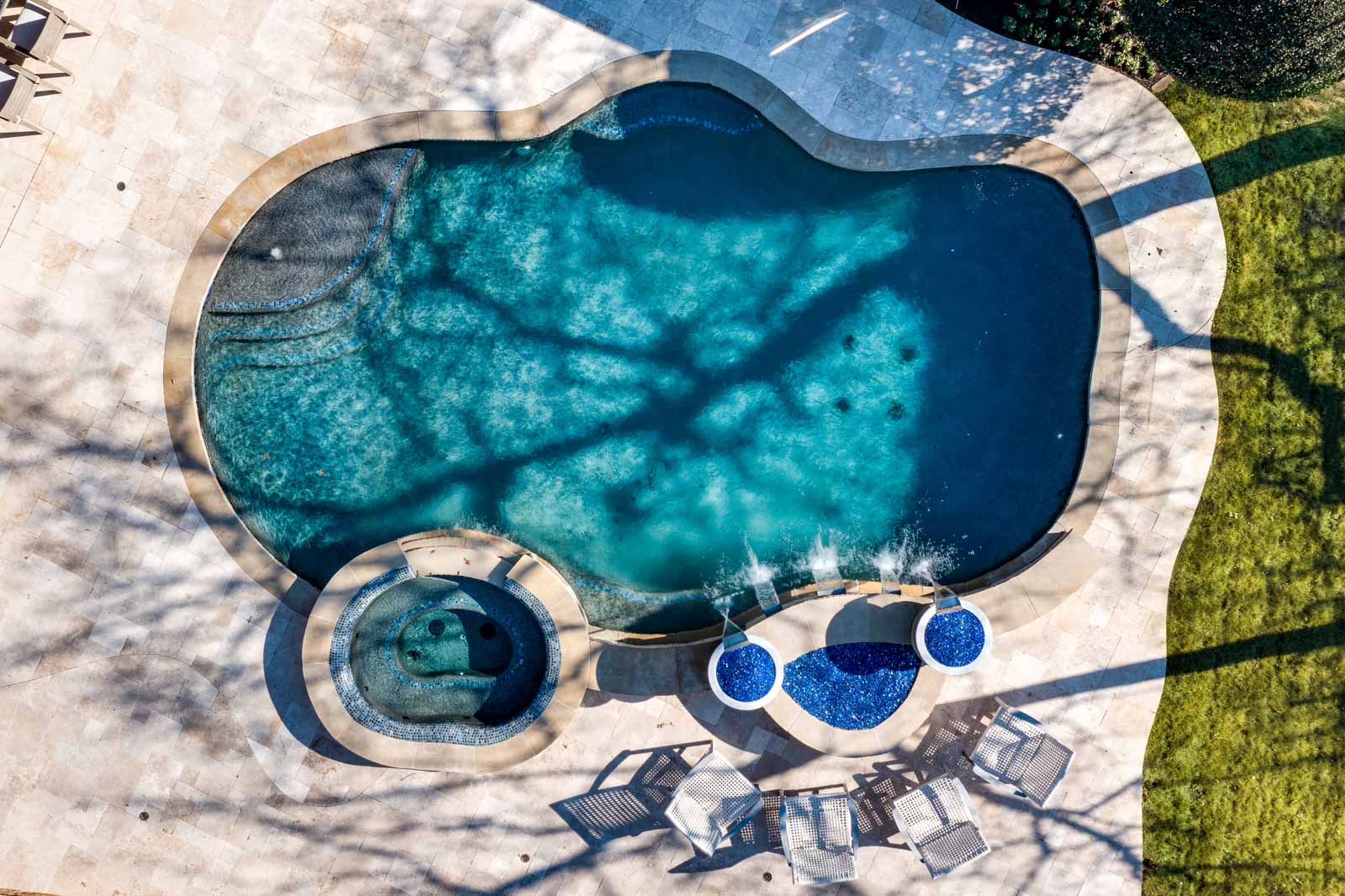
23 Aug Fiberglass vs. Concrete Pools: Which Is Right for Your Backyard
When choosing between fiberglass and concrete pools, it’s essential to understand the advantages and drawbacks of each to determine which type best fits your needs, preferences, and budget. Here’s a detailed comparison to help you make an informed decision:
Fiberglass Pools
1. Advantages
1.1. Low Maintenance:
Smooth Surface: Fiberglass pools have a smooth, non-porous surface that resists algae growth and staining, requiring less frequent cleaning and fewer chemicals.
Less Scrubbing: The smooth finish makes maintenance more accessible, reducing the need for scrubbing compared to rougher surfaces like concrete.
1.2. Quick Installation:
Pre-Fabricated: Fiberglass pools come pre-fabricated, allowing for a faster installation process. Installation typically takes a few weeks, compared to several months for concrete pools.
Minimal Site Disruption: The process is less disruptive to your yard due to reduced construction time and the use of pre-formed shells.
1.3. Durability:
Flexible Material: Fiberglass can withstand ground shifts and impacts better than concrete, reducing the risk of cracks.
Long Lifespan: With proper care, fiberglass pools have a long lifespan and can last several decades.
1.4. Energy Efficiency:
Insulating Properties: Fiberglass pools naturally retain heat better, potentially reducing heating costs and making the pool more energy-efficient.
1.5. Aesthetic Options:
Variety of Finishes: Fiberglass pools are available in various colors and finishes and offer aesthetic flexibility to match your design preferences.
2. Disadvantages
2.1. Limited Customization:
Pre-Formed Shapes: Fiberglass pools come in standard shapes and sizes, which may limit design customization compared to concrete pools.
Size Constraints: The manufacturing process limits the size of the pool, which may not fit all backyard sizes and shapes.
2.2. Shipping and Delivery:
Transport Issues: Large fiberglass pools may require special transport and handling, impacting delivery times and costs.
Concrete Pools
1. Advantages
1.1. Customization:
Design Flexibility: Concrete pools offer unlimited design flexibility, allowing for custom shapes, sizes, and features. This makes them ideal for creating unique or complex designs.
Depth and Features: You can easily incorporate varying depths, built-in features (e.g., spas, waterfalls), and custom finishes.
1.2. Durability:
Strong and Sturdy: Concrete pools are highly durable, built to last, and able to withstand heavy use and various weather conditions.
1.3. Variety of Finishes:
Surface Options: Concrete pools offer a range of surface finishes, including plaster, aggregate, and tile, allowing for customization of texture and appearance.
2. Disadvantages
2.1. Higher Maintenance:
Porous Surface: Concrete surfaces are more porous, making them prone to algae growth and staining. This requires more frequent cleaning and maintenance.
Increased Chemical Use: The rough surface often necessitates more chemicals to maintain water quality.
2.2. Longer Installation Time:
Construction Time: Concrete pools involve a longer construction process, typically taking several months due to the need for excavation, formwork, and curing.
Site Disruption: The installation process can be disruptive, involving significant excavation and construction work.
2.3. Higher Costs:
Initial Investment: Concrete pools generally have a higher upfront cost than fiberglass pools. Additional expenses may include ongoing maintenance and repairs.
Ongoing Costs: The need for more frequent maintenance and potential repairs can lead to higher long-term costs.
Conclusion
Choosing between a fiberglass and concrete pool depends on your priorities, budget, and design preferences:
Fiberglass Pools are ideal for those seeking a low-maintenance option with quick installation and energy efficiency. They offer a smooth surface and a variety of pre-fabricated designs, but customization may be limited.
Concrete Pools are best for homeowners who desire complete customization, including unique shapes and features. While they offer high durability and design flexibility, they require more maintenance and longer installation time.
Please look at your needs and preferences carefully and consult a pool professional to determine which pool type best suits your backyard and lifestyle.


